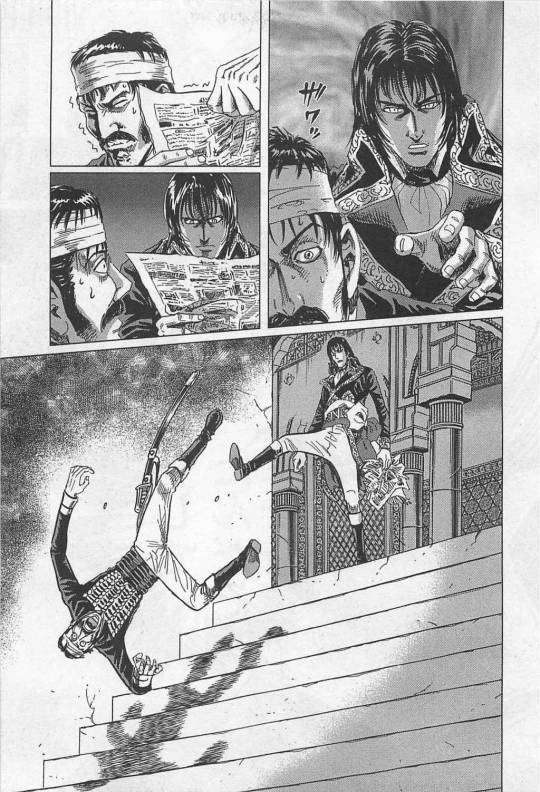Text
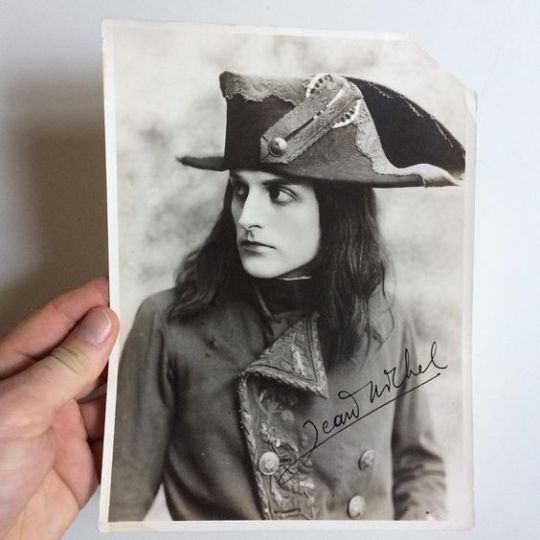
An actor who played Napoleon before Abel Gance did (Jean Napoléon Michel). He is very pretty! Reminds me of Patrice Alexsandre who played St. Just in la force des choses
From pinterest which took it from instagram.
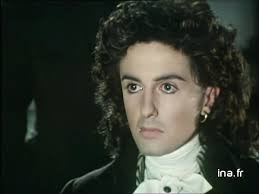
23 notes
·
View notes
Text
Description of Napoleon at the Briars
A gentleman returning from India wrote this in a letter:
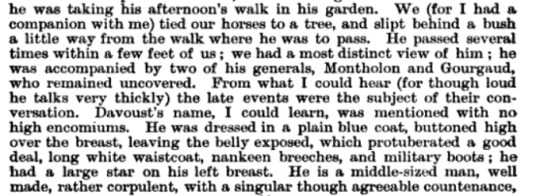

Napoleon: Extracts from the 'Times' and 'Morning Chronicle', 1815-1821.
google books
29 notes
·
View notes
Text
Napoleon as Apollo Belvedere, god of plagues, by Antoine-Jean Gros
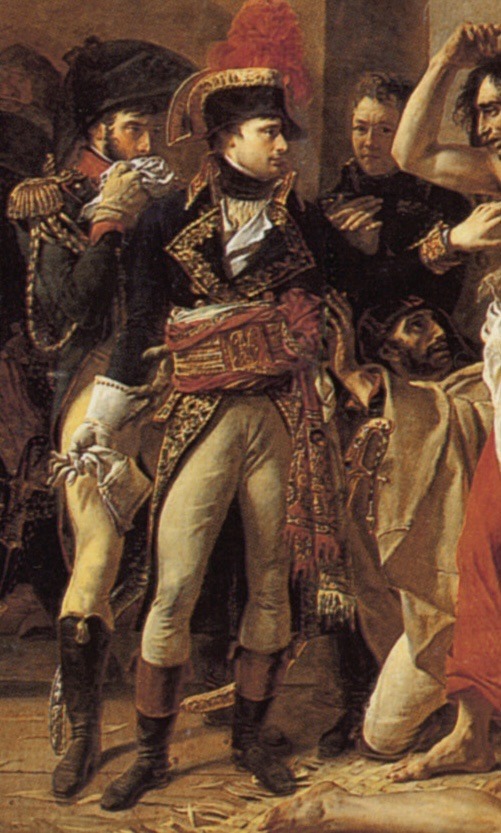
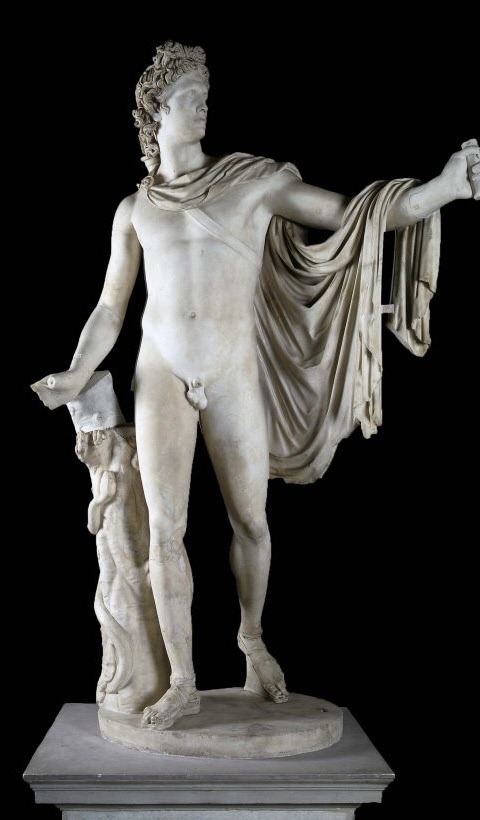
Napoleon (left), Apollo Belvedere (right)
#Antoine-Jean Gros#Gros#napoleon bonaparte#Bonaparte Visiting the Plague Victims of Jaffa#Bonaparte visitant les pestiférés de Jaffa#Apollo Belvedere#Napoleon#Apollo#Belvedere Apollo#napoleonic era#napoleonic#first french empire#french empire#19th century#history#art#art history#symbolism#history of art#classical#french revolution#neoclassical#Egypt
30 notes
·
View notes
Note
Has your #1 comfort character committed a crime?
#well….#hehehe 🤭#he was never convicted of any crime I’ll just say that#but he was jailed on an island (without a trial)
21K notes
·
View notes
Text

A Parisian Empire tortoiseshell snuff box with a cameo portrait, circa 1810, Napoleonic era
Gold mountings by Pierre André Montauban. The goldsmith Pierre André Montauban enjoyed a highly productive career in Paris between 1804 and [1819] at his studio in Quai des Orfèvres 30. He was described as a “bijoutier garnisseur”, indicating that he also produced gold mountings for works by other artists
(Lempertz)
#cameo#cameos#Pierre André Montauban#Montauban#snuff box#napoleonic era#napoleonic#first french empire#France#French art#19th century#Pierre-André Montauban#art#neoclassical#neoclassical art#neoclassicism#classical#classical art#auction#Auction 1139 - overview Cologne#lot 256#jewellery#jewelry#snuffbox
10 notes
·
View notes
Text
“How could one remain a prophet of doom in all this extravagance of spirit and vivacious hustle?”
— Napoleon Bonaparte in a letter to his brother, Joseph
Source: Joe H. Kirchberger, The French Revolution and Napoleon: An Eyewitness History
#napo’s blinding optimism#Napoleon quotes#correspondence of Napoleon#joseph bonaparte#Joe H. Kirchberger#Kirchberger#The French Revolution and Napoleon: An Eyewitness History#napoleonic era#napoleonic#first french empire#french empire#19th century#quotes#french revolution#history#napoleon bonaparte#france#quotes by Napoleon
17 notes
·
View notes
Text
apparently napoleon hated murats mustache so much that he ordered it to be omitted from portraits. i think he was just a hater bc murats mustache looked fantastic
#Napoleon was right tbh#lol#amazing art!#joachim murat#napoleon bonaparte#Murat#Napoleon#vid#Napoleon’s marshals#art#tumblr art#artists on tumblr
123 notes
·
View notes
Text
So they are making a series about Talleyrand’s chef, Antoin Carême. According the historian Marie-Pierre Rey, he was “known for his attachment to Napoleon.”
#I will be seated#hehe#Antonin Carême#Carême#Napoleon#Talleyrand#Apple TV#Apple TV+#napoleonic era#napoleonic#first french empire#french empire#napoleon bonaparte#chef#culinary history#culinary
7 notes
·
View notes
Text
“Was I not devoted to the revolution from the very beginning? I... have sacrificed everything for the republic. I deserve the name of a patriot... Lend me your ears... But if my enemies are after my life—I do not think highly of it and have often despised it. Indeed, only the thought that my life could be of use to the nation makes me carry its burden courageously!”
— Napoleon, to the Convention from the prison at Antibes, letter of August 1794.
Source: Joe H. Kirchberger, The French Revolution and Napoleon: An Eyewitness History
#Napoleon#napoleon bonaparte#napoleonic#napoleonic era#first french empire#french empire#history#france#Antibes#19th century#french revolution#french history#correspondence of Napoleon#Joe H. Kirchberger#Kirchberger
21 notes
·
View notes
Text
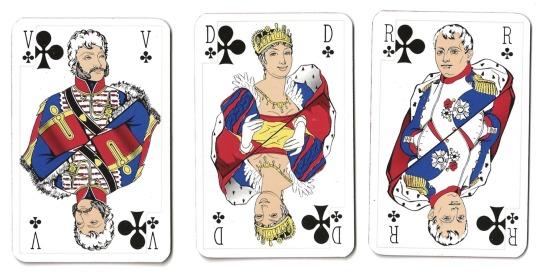

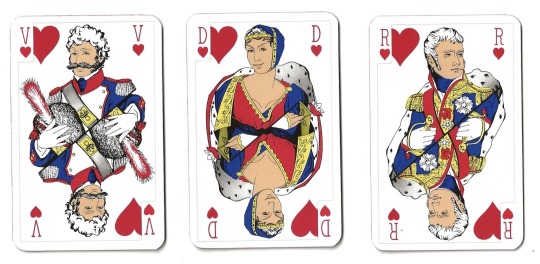

Catel & Farcy 1960s Napoleon Playing Cards
♣️: Napoleon and Josephine
♠️: Soult and (I presume?) his wife Louise
♥️: Lannes and Pauline
♦️: Murat and Caroline
All of the Jacks/Valets are just soldiers, not specific people; all of the numbered cards and aces are regular cards.
23 notes
·
View notes
Text
whiteboard doodles dump!
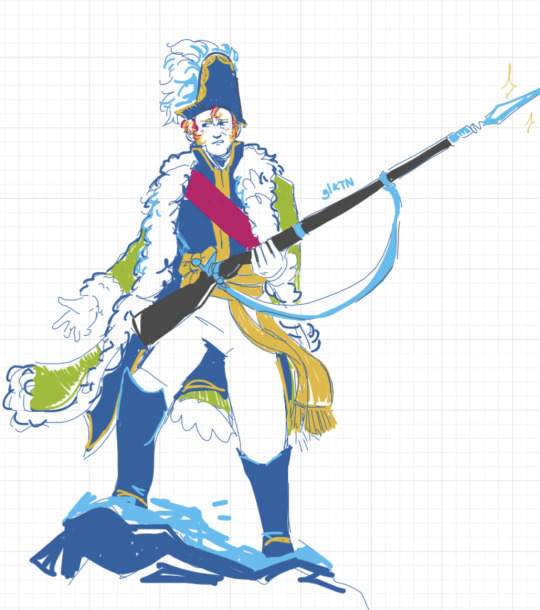
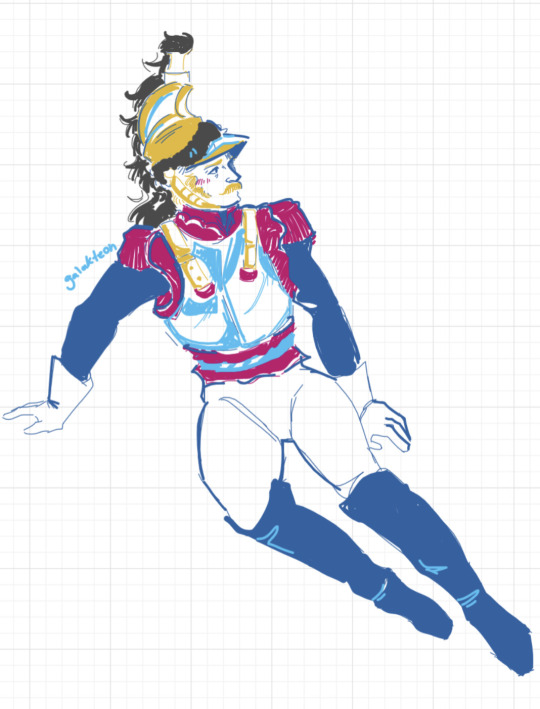
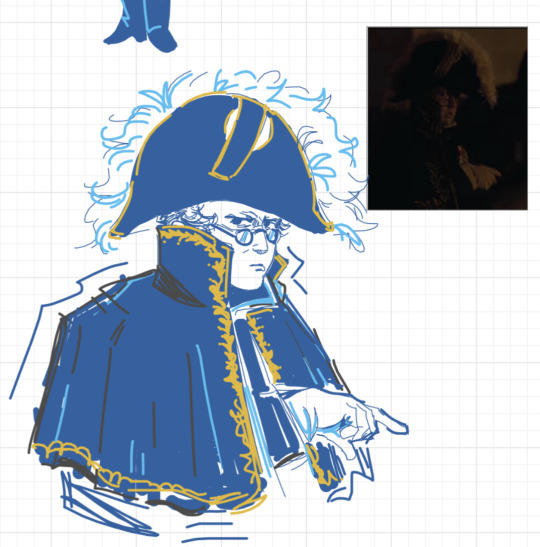
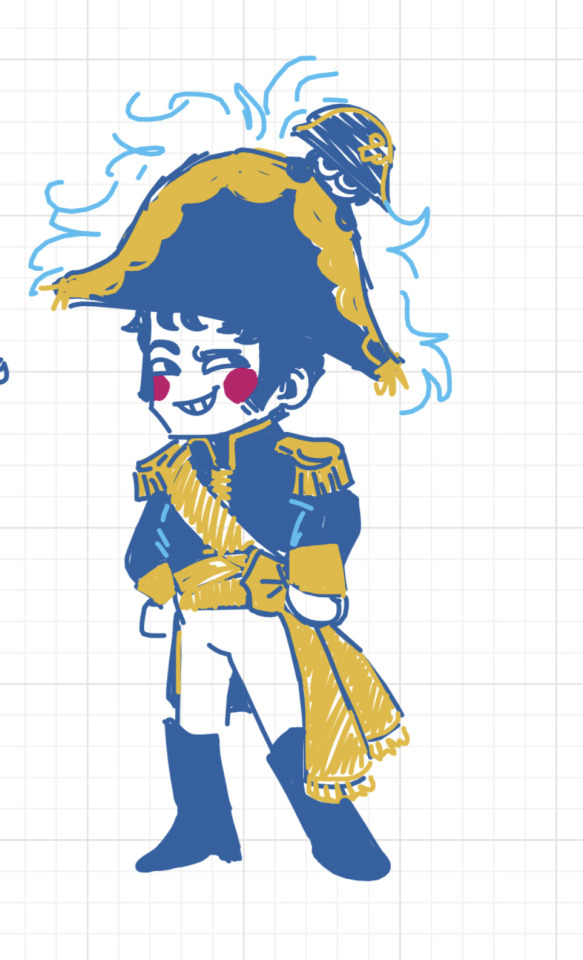
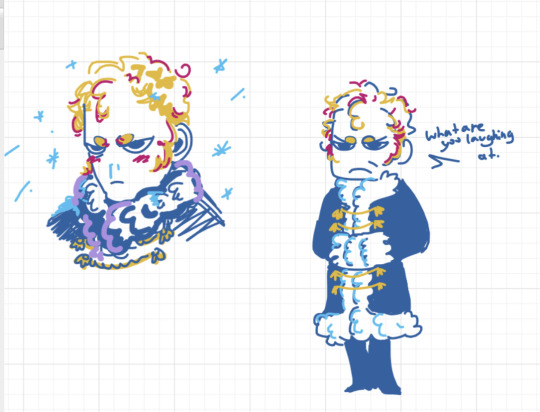
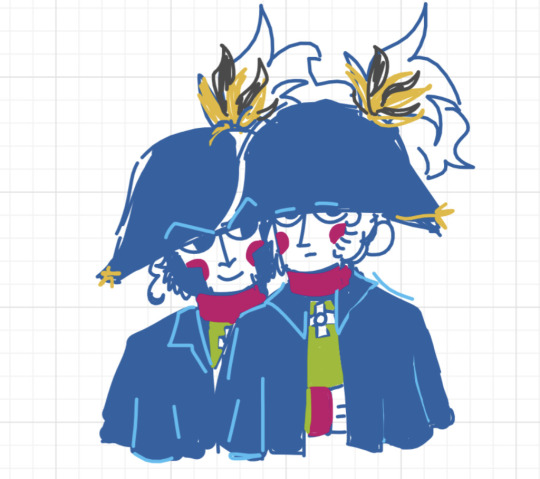
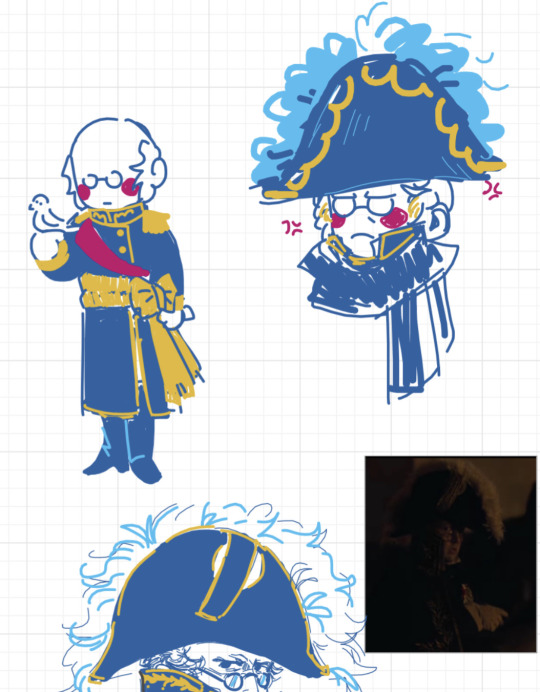



(apologies for some of the pictures being horribly cropped oops)
#amazing art#napoleon#napoleonic era#napoleonic#first french empire#french empire#napoleon bonaparte#19th century#history#art
144 notes
·
View notes
Text
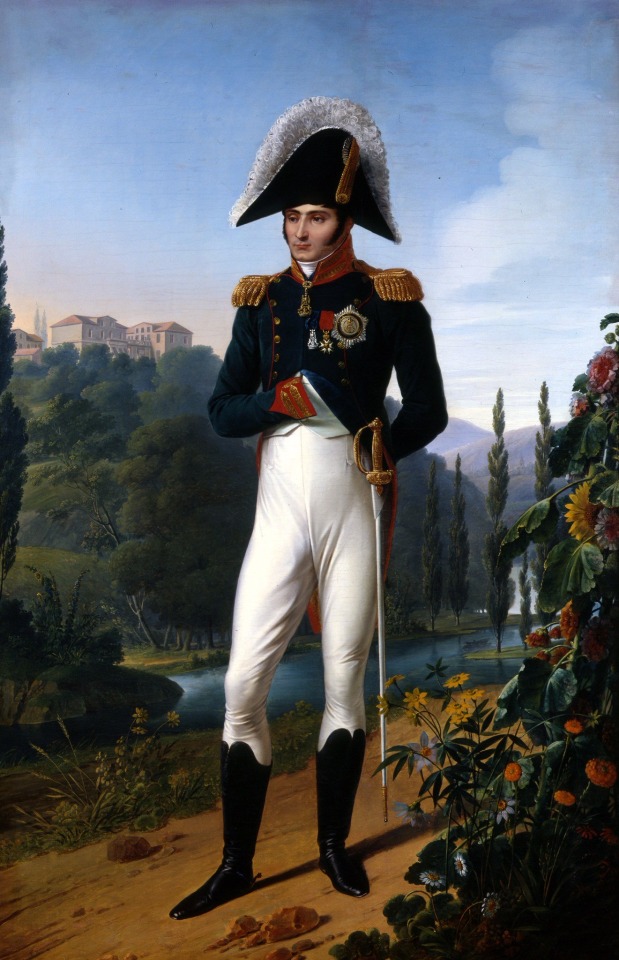
Jérôme in his daddy long leg era
Portrait of Jérôme Bonaparte by François-Joseph Kinson, c. 1807-1813, The Bowes Museum
#jerome bonaparte#Jerome#Napoleon’s brothers#Jérôme#Jérôme Bonaparte#François-Joseph Kinson#Kinson#napoleonic era#napoleonic#first french empire#french empire#art#19th century art#19th century#history#1800s art#bicorne#Barnard Castle#The Bowes Museum#Bowes Museum#Napoleon’s family#Napoleon’s siblings
15 notes
·
View notes
Text

This is so wild
#when you take the propaganda a little too seriously#this is something I would do tbh 😂#source:#letter of T. H. Brooke on 3 January 1816 from St. Helena#Napoleon in his own defence by Clement Shorter (1910)#Thomas Henry Brooke#napoleon#napoleonic era#napoleonic#napoleon bonaparte#letter#Saint Helena#st. Helena
8 notes
·
View notes
Text

Napoleon with a puppy
🥺
#source:#letter of T. H. Brooke on 3 January 1816 from St. Helena#Napoleon in his own defence by Clement Shorter (1910)#Thomas Henry Brooke#page 263#Napoleon#napoleon bonaparte#napoleonic#napoleonic era#letters#Saint Helena#st. Helena
16 notes
·
View notes
Note
Hi! I was wondering is there an actual source stating that calling Napoléon "Buonaparte" was meant as derogatory? I've read here (https://mrodenberg.com/2012/09/13/bonaparte-or-buonaparte/) that on Saint-Helena, the British addressed him as that to undermine his legitimacy as French ruler. Also, I know of another historical figure, Prieur de la Côte-d'Or, who not being very fond of him used the same appellation when talking about Napoleon
Hey! Yes, it was definitely used in a derogatory way to delegitimize Napoleon’s rule by denying his frenchness. Napoleon’s brother, Louis, commented on this in his A Reply to Sir Walter Scott’s History of Napoleon in 1829:
Another visible object is, that of desiring to make Napoleon pass as a foreigner in France. In fact, if such were not the intentions of the author, why this obstinacy in writing the family name of Napoleon, Buonaparte, instead of Bonaparte, consecrated as it is by long habit? Certainly the letter O is not more or less noble or French than the letter U, but it is done to impress a foreign character upon Napoleon, and divide his glory from that of France.
The Italian nation is sufficiently glorious for one to be proud of belonging to it, especially of deriving one’s origin from this beautiful country; but when one has been born under the laws of France, grown up on its soil, with no other knowledge of foreign countries, even of beautiful Italy, than that gained with the victorious legions of France, it is rather too ridiculous to receive from an English author the certificate of a foreigner.
The name Buonaparte was being used by the coalitions before the St. Helena years, especially by the British, so there are quite a lot of examples.
To be clear, Buonaparte was Napoleon’s birth name and the name he preferred to go by for over 20 years. He changed his name during the French Revolution during a wave of name changes across France to more revolutionary and patriotic names. That being said, Bonaparte is already listed as his name on his baptism certificate* in 1771 (“Neapoleone Bonaparte”) when he was nearly 2 years old, which is 3 years into French rule of Corsica. On the same document, his father’s name is spelled as Buonaparte.
It’s a little complicated. The spelling of names weren’t very standardized and were subject to a lot of variation. But the usage of the name Buonaparte was definitely intentional among Napoleon’s enemies. You can tell pretty easily when someone is saying it in a bad faith manner.
From the historian Andrew Roberts (Napoleon: A Life):
For decades thereafter, British and Bourbon propagandists re-inserted the ‘u’ in order to emphasize Napoleon’s foreignness, such as in François-René de Chateaubriand’s snappily titled 1814 pamphlet Of Buonaparte and the Bourbons and the Necessity of Rallying Round our Legitimate Princes for the Happiness of France and that of Europe, in which he wrote: ‘No hope was left of finding among Frenchmen a man bold enough to dare to wear the crown of Louis XVI. A foreigner offered himself, and was accepted’ (Chateaubriand, Of Buonaparte p. 5). Even after the British royal family changed the name of their dynasty from Saxe-Coburg-Gotha to Windsor in 1917, some British historians still ridiculed Napoleon for dropping the ‘u’ from his surname.
It becomes obvious when people change how they refer to Napoleon depending on their current stance or relationship with him. For example, when France and Russia were allies, Tsar Alexander I calls him Napoleon or even the Emperor Napoleon. But when the alliances change and Napoleon is removed from power, Alexander referred to him as Buonaparte.
From the historian Marie-Pierre Rey (Alexander I):
Alexander’s use of the Corsican family name of Buonaparte is interesting, implying that for Alexander Napoléon was no longer emperor of the French — and not even French by nationality!
So there were two purposes to calling him Buonaparte: to accentuate his commoner origins as well as his foreignness in order to delegitimize his authority as head of state.
Thanks for the interesting question!
————
* (The baptism document can be found on Archives de la Corse-du-Sud -> Etat Civil -> Ajaccio -> 1771 -> Baptemes -> 6 MI 4/21)
#asks#my answers#Napoleon#napoleon bonaparte#buonaparte#napoleonic era#napoleonic#first french empire#french empire#Bonaparte#history#french revolution#Corsica#Ajaccio
36 notes
·
View notes
Text
I dunno if I'm the only one but, why is young Napoleon always in a state of sadness or depression, like in a sad stereotypical poor boy you would see in movies
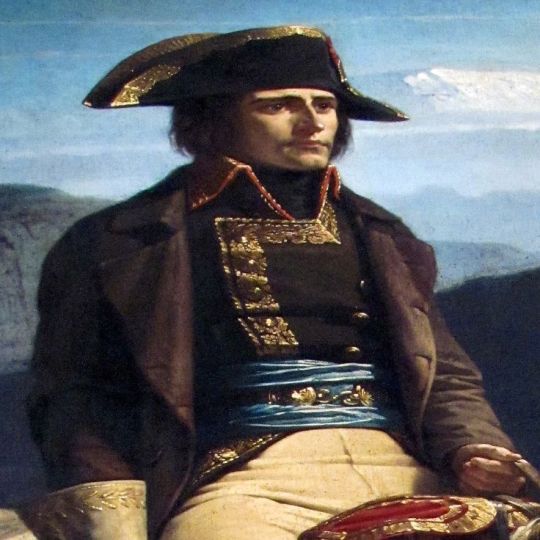
25 notes
·
View notes
